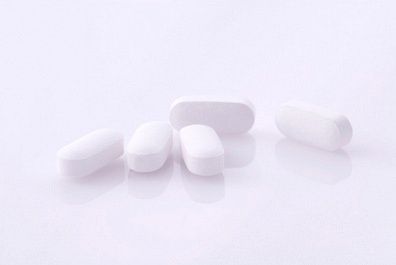Medical expert of the article
New publications
Preparations
Zinc for colds: yes or no?
Last reviewed: 04.07.2025

All iLive content is medically reviewed or fact checked to ensure as much factual accuracy as possible.
We have strict sourcing guidelines and only link to reputable media sites, academic research institutions and, whenever possible, medically peer reviewed studies. Note that the numbers in parentheses ([1], [2], etc.) are clickable links to these studies.
If you feel that any of our content is inaccurate, out-of-date, or otherwise questionable, please select it and press Ctrl + Enter.
Zinc for colds causes mixed reviews from doctors. This is a natural substance that is found in almost every cell of the human body. Zinc is one of those minerals that doctors recommend including in the daily diet. Zinc has antioxidant properties that help the body fight infections and restore living tissue. To get zinc from natural sources, you need to include red meat, seeds, nuts, milk, beans and cheese in your diet. Will these tricks save you from a cold?
Read also:
New research on the effects of zinc on the body
A study published February 15, 2011, suggests that taking zinc in syrup or tablet form during the first few days of a cold may help reduce the effects of an upper respiratory infection.
The review also found that zinc could reduce the number of days children missed from school due to illness and avoid the use of antibiotics for complications of the common cold. Zinc may also help prevent colds in people who used it for five months or more.
A review of 15 studies with 1,360 participants, published by the international Cochrane group and a collaboration of many scientists, looked at the evidence for therapeutic interventions. They found that there was no convincing evidence to recommend zinc as a cold remedy.
"The latest research data support the use of zinc lozenges for the treatment of colds," says study researcher M. Singh, MD, a pediatric pulmonologist at the Chandigarh Institute of Medical Research in Chandigarh, India.
Zinc versus placebo
A total of 13 trials were conducted on the effects of zinc compared with placebo in people aged 65 years suffering from early cold symptoms, including sore throat, headache, cough, fever, runny or stuffy nose, sneezing, hoarseness and muscle pain.
Results from six studies showed that taking zinc within the first 24 hours of a cold shortened its duration by about a day.
Results from five studies involving more than 500 people showed that people who used zinc experienced less severe cold symptoms than those who took a placebo.
An analysis of two combined studies involving more than 1,500 people found a 40% reduction in the number of colds in people who took zinc supplements to prevent colds, compared with those given a placebo.
Some people have reported side effects when taking zinc, such as nausea or a metallic taste in the mouth.
While this news offers hope that we can now fight colds more effectively with natural methods, the researchers say they don't yet have enough evidence to give people guidelines on exactly how much zinc to take to prevent colds or how long to take it for.
How does zinc fight colds?
"Zinc works in two ways," says Ananda Prasad, MD, professor of internal medicine at Wayne State University School of Medicine in Detroit, who has spent his career researching the effects of zinc on the immune system.
First, zinc affects the ability of rhinoviruses, which cause about 80% of all colds, to reproduce. Second, zinc can block their ability to destroy cell membranes and then cause infection."
The effect of zinc on the duration of a cold
In 2008, Prasad published the results of a study on the effects of zinc compared to placebo in 50 participants.
Half of the study participants received 13.3 milligrams of zinc in tablets every three to four hours, while the other half received dissolvable tablets with inactive ingredients but were told they were zinc.

"It usually takes about eight days for a cold to clear up," says Prasad, "but zinc reduces the duration of the illness by about 50 percent."
Study participants who took zinc had a cold for about four days, compared with seven days for those in the placebo group.
"So far, to my knowledge, there is nothing more effective than zinc in fighting colds," says Dr Prasad.
Medical experts still believe that more research is needed before they can recommend the most effective zinc supplements for colds or to prevent them. Doctors believe that in high doses — more than 40 milligrams a day — zinc can cause dizziness, headaches, drowsiness, increased sweating, loss of muscle coordination, alcohol intolerance, hallucinations, and anemia.
They also advise against the use of zinc nasal sprays, which some say can cause loss of smell.
Zinc may be helpful for colds, but since the evidence is not yet fully supported, always consult your healthcare provider before deciding on a cold treatment strategy.
Attention!
To simplify the perception of information, this instruction for use of the drug "Zinc for colds: yes or no?" translated and presented in a special form on the basis of the official instructions for medical use of the drug. Before use read the annotation that came directly to medicines.
Description provided for informational purposes and is not a guide to self-healing. The need for this drug, the purpose of the treatment regimen, methods and dose of the drug is determined solely by the attending physician. Self-medication is dangerous for your health.

